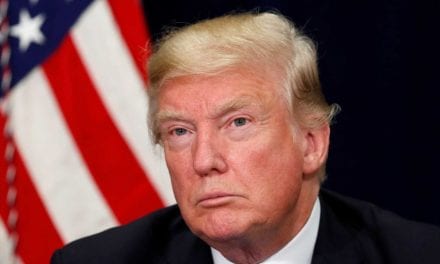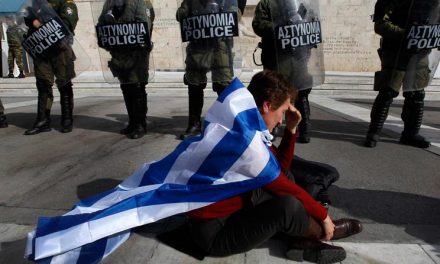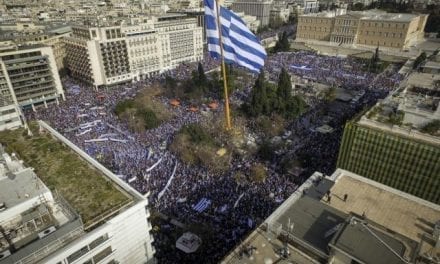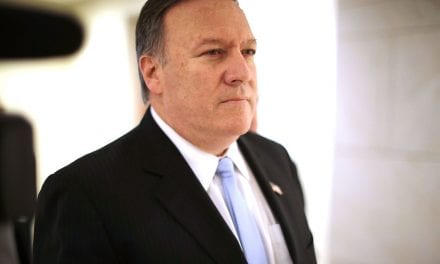By NOORY FAKHRY*
Kurds” is defined as ”the largest ethnic group without their own State”! If Kurds can be considered as people, they have the ‘right to self-determination’ if not, they have cultural and linguistic rights. In fact, the nature of ‘minorities’ and ‘nations’ (people) is ‘one and the same’ and the primary distinguishing characteristic of both are language and culture. The only difference is that minorities numerically are inferior than people (dominant population). Therefore, despite that Kurds are numerically inferior to dominant populations (Arabs, Persians and Turks) within the countries of Iran, Turkey, Syria and Iraq, but they have the same factors that the nations of Persian, Turk and Arab have. In this regards international community in 1920 by the Treaty of Sèvres admitted that Kurds are people and have the right to self-determination.
The Treaty of Sèvres clearly acknowledged that Kurds are people and then have the right to self-determination and independence from Turkey. In this Treaty; “the Kurds of Turkey were promised local autonomy in predominantly Kurdish areas of eastern and southeastern Turkey. For its part, the Turkish government agreed to accept the terms of the provision (Article 63). Article 64 made a further promise to the effect that should the majority of the Kurdish people in the area decide to become independent within one year, and subject to this being approved by the Council of the League of Nations, Turkey was under an obligation to renounce her claims over these areas”. Kurds in Turkey at that time included Kurds in Turkey, Iraq and Syria but as Kurds in Iran have the same and distinct identity of their own and the sense of solidarity with the other part of Kurdistan also have the right to self-determination in this base. No matter if this Treaty is now applicable or not? The important thing is the acknowledgment of International community on having this right of Kurds.
On the other hand, If we suppose that that the Treaty of Sèvres has no effect now and that Kurds should remain within the borders of Iran, Turkey, Iraq and Syria as minority but in the current international law Kurds can be considered as ‘people’ and to have the right to self-determination and independence; This right that called right to reversion apply whenever minority suffers oppression and the State is unwilling to provide a better situation for them, in which case the minority attains the status of people and may exercise a right of self-determination. This right appears in the Resolution 2625 (XXV) of UN that is in the position of International customary law. According to this Resolution the right of reversion applies whenever any part of State’s population is not represented in its government. The example of this right of reversion is in Buchhiet’s Bangladesh and Southern Sudan. The High Court of Canada used this principle for definition of population of Quebec. According to this theory unrepresented people and “at a certain point, the severity of a State’s treatment of its minority becomes a matter of international concern. This concern may be evidenced by the international demand for guarantees of minority rights or suggestions of regional minority…or at may involve an international legitimation of a right to secessionist self-determination, as a self-help remedy by the aggrieved group. The International Court of Justice by referring to this Resolution adopted that the population of Kosovo, that were subject of massive human rights violations by the Serbs, have become people and consequently they have right to self-determination and that “[t]he participating States will respect the territorial integrity of each of the participating States” and “the scope of the principle of territorial integrity is confined to the sphere of relations between States” not non-states. Then unilateral declaration of independence of Kosovo was legitimate.
It is clear that the rights of Kurds in Iran, Turkey, Syria and Iraq have been fundamentally violated for a long time. Kurds have been subject to massive and grave human rights violations just because of their ethnicity. All discriminations, marginalization, subjugation, repression, tortures, arbitrary killings of thousands people, genocides and crimes against humanity by governments of Iran, Turkey, Syria and Iraq against Kurds clearly and legally changed the position of Kurdish population from a minority to people that have the right to external self-determination to secede from Iran, Turkey, Syria and Iraq. In fact, the population of Kurdistan now after a history of violations of their basic rights considers the countries of Iran, Turkey, Syria and Iraq as occupiers and invaders to their territory.
Unfortunately, despite that Kurds have all the criteria of people, yet the international community has not allowed them to exercise the right to self-determination. It is not an unusual case; the international community has been very resistant in these cases. But “with all the restrictions that States can bring to the exercise of the right of self-determination, its development has been beyond the control of States and its enforcement has frequently due to the persistence of individuals and not of the States which largely remain unwilling participants in this area. As “Judge Ammoun in the Namibia Opinion” expressed:
“Indeed one is bound to recognize that the right of peoples to self-determination, before being written into charters that were not granted but won in bitter struggle, had first written painfully, with the blood of the peoples, in the finally conscience of humanity.”
The Oppressed Kurds not only have the right to self-determination but also have the right to resist of abuses of authority, and even to use violent means to do so. This claim underpins many human rights discussions regarding “political offences” and political violence by non-state actors. The notion of the right to resist also provides moral, political or legal legitimacy to the struggles of oppressed people who seek to overturn, or defend themselves against, a regime that oppresses them.” Then inherently, Kurds in the countries of Iran, Turkey, Syria, individually and collectively have the right to ‘self-defense’ against the brutality of those governments. On the other hand, the Resolution of definition of Aggression and Friendly Relation that was accepted by consensus spoke of the right of peoples with the right to self-determination to ‘struggle’ for their end.
Then PKK or Kurdistan Workers Party (Partiya Karkerên Kurdistan) as the most important Kurdish political and military party in Kurdistan within Turkey, PJAK (Party for Free Life in Kurdistan) within Iran and other parties (PUK, PDK etc.) in Kurdistan, generally are acting on the base of legitimate right to self-defense and for ‘peaceful and armed struggle’ for ‘self-determination’. As the international community has been very resistant to exercise the right to ‘self-determination’, they have put many obstacles against the struggle of Kurds in achieving to their goal; it would be reasonable to suppose that one of these obstacles could be by labeling their ‘legitimate armed struggle’ as a ‘terrorist activity’ or by assisting countries of Iran, turkey and Syria against this struggle. In addition, this word (terrorism) is widely vague and political, and then easily abused by the international community. The creation and practice of PKK is definitely similar to the ANC, “The African National Congress (ANC) in South Africa, though labeled terrorist by its own and many foreign governments, permitted sabotage against strategic (non-human) targets, and countries united against the ANC, of course they would choose their own leaders also opposed targeting of civilians.”
Despite that in practice PKK and ANC oppose targeting civilians and act in accordance to the Law of War and international law but countries labeled them as terrorist groups. The opposite situation should be considered in these cases; indeed, it is the countries of Iran, Turkey, Syria and Iraq (and at the apartheid time South African government) should be considered as terrorist States because it is obvious that they oppress Kurds, commit war crimes and crimes against humanity against Kurds, terrorized millions Kurds while hundreds of thousands of them fled from these countries in fear of persecution. In fact, in this situation, seem that the struggle of Kurds is for defending their-selves and for exercising self-determination.
This struggle is inevitable; it would be the only remedy that Kurds have for asserting their rights and saving their life and their dignity. Then Kurds should struggle peacefully and in the last resort with arms in such a way that they won this struggle until the international community be conscious that maintaining regional and international peace “based on respect for the principle of equal rights and self-determination of [Kurdish] peoples” as such the case of Southern Sudan and Kosovo. Kurds by experience understood that for achieving to this goal and for freedom, they “has no friends but mountains” as Noam Chomsky also reflected in one of his speeches.
* Student at Lund University in International Human Rights Law



















